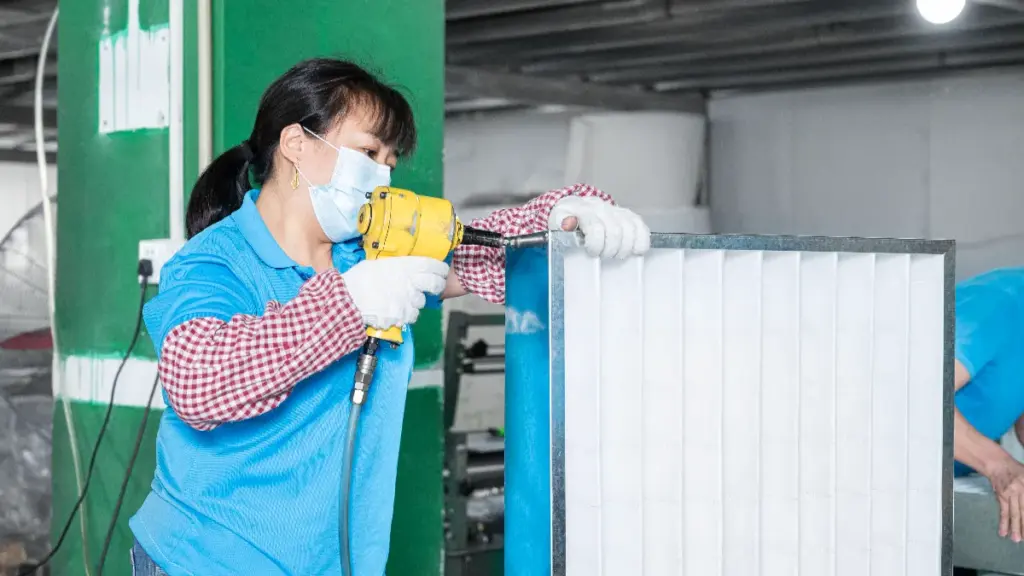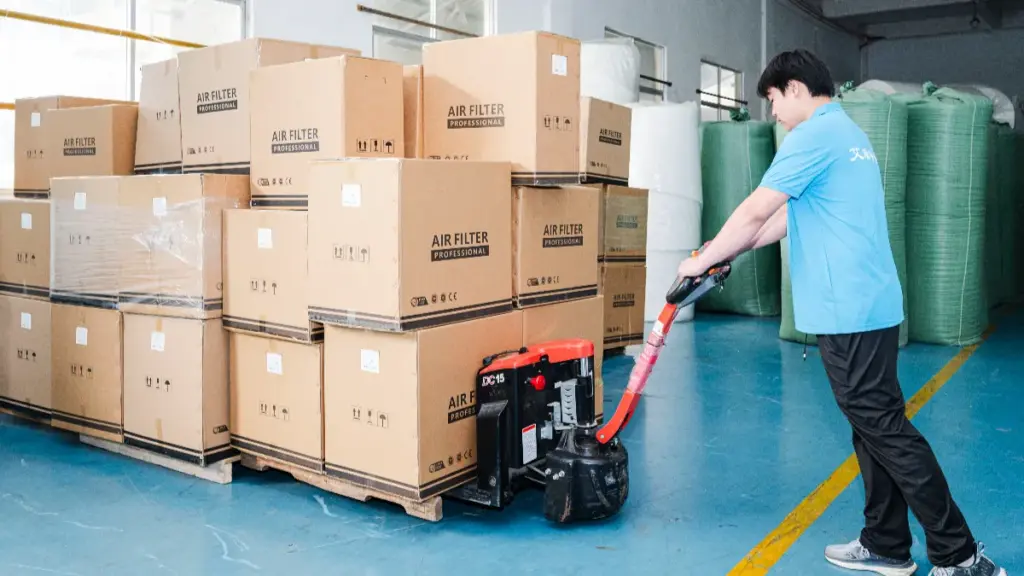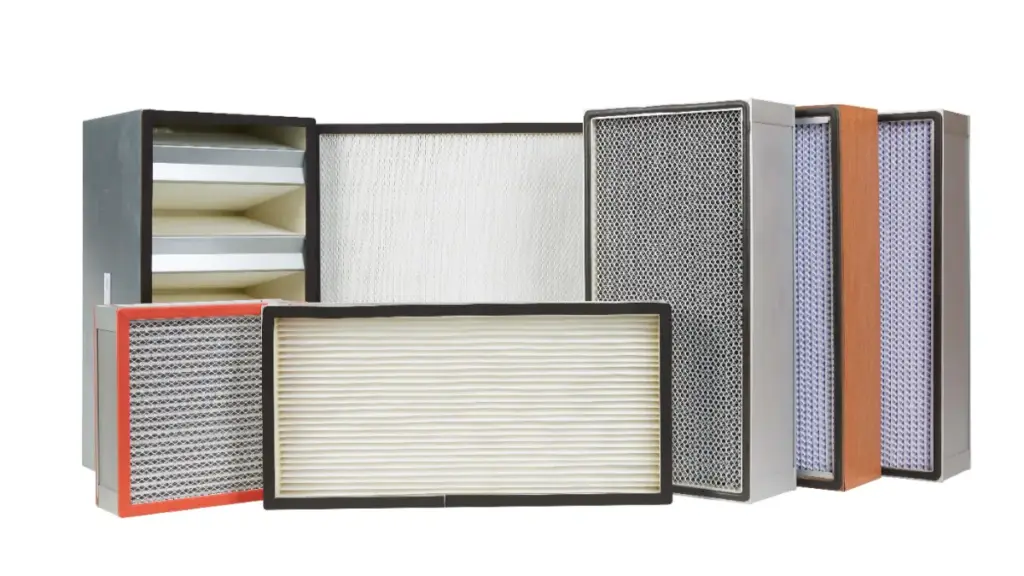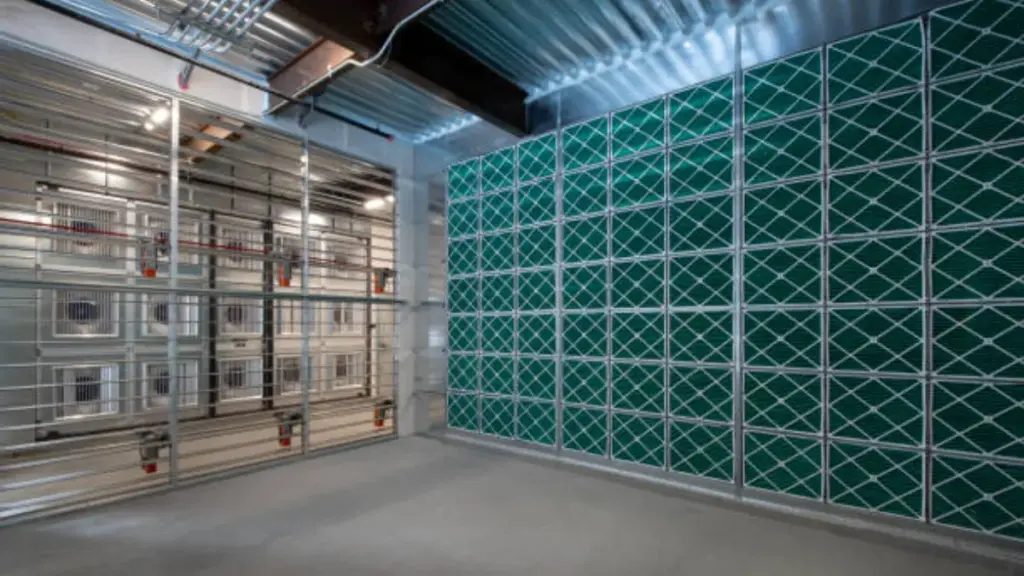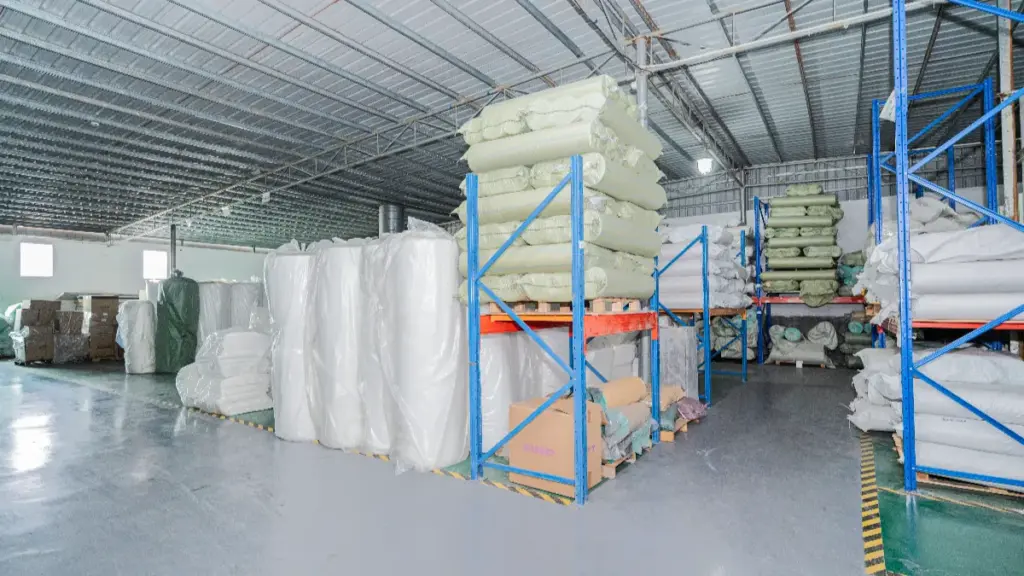Con una creciente preocupación por la calidad del aire interior, Más consumidores y empresas están recurriendo a los filtros HEPA.. Pero no todos los filtros HEPA son creados iguales. Cuando se trata de filtro HEPA verdadero versus filtro HEPA, las diferencias son más que técnicas: afectan su salud, seguridad, y decisiones de compra. Esta guía le explicará lo que necesita saber antes de tomar una decisión..
¿Qué es un filtro HEPA y por qué es importante??
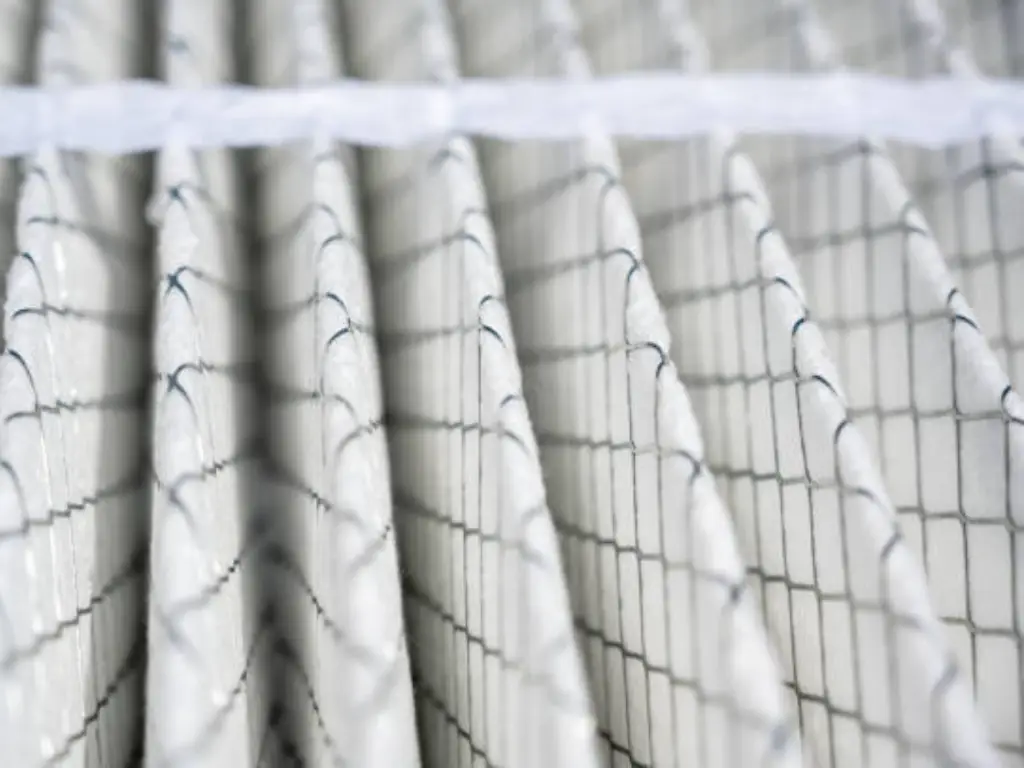
El término Hepa representa el aire de partículas de alta eficiencia. Estos filtros están diseñados para capturar al menos 99.97% de partículas en el aire que son 0.3 micrones de diámetro: el tamaño de partícula más penetrante (MPPS), que incluye contaminantes como el polen, esporas de moho, ácaros del polvo, y bacterias.
Los filtros HEPA se utilizan comúnmente en purificadores de aire., Sistemas HVAC, salas limpias, y entornos médicos. Pero lo que los hace realmente esenciales es su capacidad para eliminar partículas nocivas que pueden provocar alergias., asma, o infecciones respiratorias. En entornos con personas vulnerables: niños, los ancianos, o personas con condiciones preexistentes: este nivel de filtración puede mejorar significativamente la calidad del aire interior y reducir los riesgos para la salud..
Sin embargo, El mercado está inundado de filtros con la etiqueta "tipo HEPA".,"" Estilo de Hepa,” o simplemente “HEPA,”muchos de los cuales no cumplen con los estándares de desempeño certificados. Este causa confusión para los consumidores al comparar un filtro HEPA con un filtro HEPA verdadero.
Comprensión ¿Qué es un filtro HEPA? significa ir más allá de la etiqueta: se trata de saber si el filtro ha sido probado y certificado para cumplir con los puntos de referencia de eficiencia reconocidos a nivel mundial.. Sólo entonces se podrá confiar en que protegerá la salud y mantendrá la calidad del aire en entornos críticos..
¿Qué es un verdadero filtro HEPA?? Estándares, Proceso de dar un título, y eficiencia real
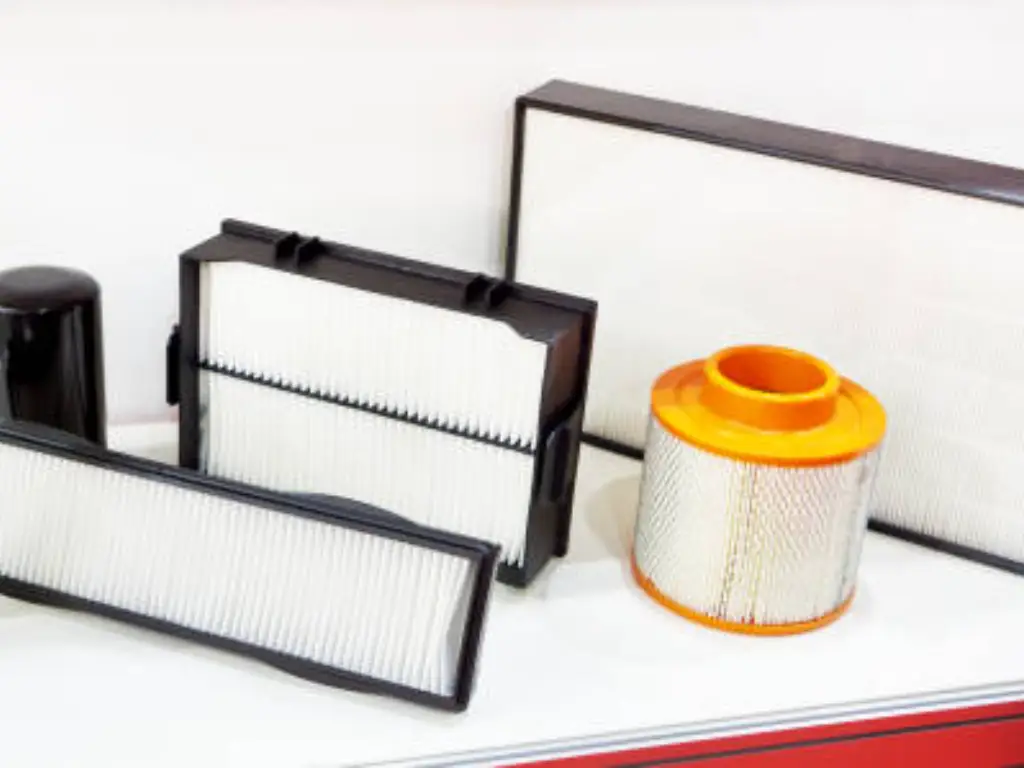
Un verdadero filtro HEPA es más que una simple etiqueta de alta eficiencia: es un compromiso de rendimiento respaldado por pruebas de terceros y certificación oficial.. A diferencia de los filtros genéricos que afirman ser eficientes a "nivel HEPA", Los verdaderos filtros HEPA se someten a un riguroso control de calidad para verificar su capacidad de capturar al menos 99.97% de partículas tan pequeñas como 0.3 micrones: el tamaño de partícula más difícil de atrapar.
Un verdadero filtro HEPA cumple con estándares internacionales reconocidos, como:
- A NOSOTROS. Estándar DOE: Mínimo 99.97% eficiencia en 0.3 micras
- EN1822 (Europa): H13 (≥99,95%) y H14 (≥99,995%) clasificación
- ISO 29463 (Global): Se alinea con EN1822, A menudo se utiliza para pruebas industriales.
Lo que distingue a los verdaderos filtros HEPA es la validación de rendimiento individual. Por lo general, cada unidad se prueba para determinar la eficiencia real de filtración de aire, lo que a menudo utiliza contadores de partículas basados en láser para confirmar que cumple con los requisitos. 99.97% estándar. Para garantizar la trazabilidad y el cumplimiento normativo, A cada filtro se le asigna un número de serie único y viene con documentación de inspección.. Esta combinación de rendimiento comprobado y certificación verificable es lo que hace que los verdaderos filtros HEPA sean esenciales en el ámbito residencial., Aplicaciones de limpieza de aire comerciales e industriales..
Al comparar el filtro HEPA verdadero con el HEPA 13 filtro de aire, la distinción a menudo radica en los métodos de prueba y la integridad de la aplicación.. Los filtros H13 se fabrican para cumplir con los estándares europeos. (≥99,95%), pero no todos se prueban individualmente. Es por eso que muchos profesionales todavía prefieren la certificación HEPA verdadera cuando se requiere una filtración de alto riesgo, especialmente en comparaciones como el filtro h13 versus HEPA verdadero., donde la confiabilidad en el mundo real importa más que el etiquetado.
Tipo HEPA versus HEPA verdadero: Diferencias clave explicadas
Aquí hay un desglose sobre los filtros HEPA verdaderos y los filtros tipo HEPA:
| Característica | Verdadero hepa | Tipo Hepa |
| Eficiencia de filtración | ≥ 99.97% @ 0.3 μm | Normalmente entre 85% y 95% @ 0.3 μm |
| Proceso de dar un título | Probado y certificado individualmente por DOE, EN1822, o normas ISO | Generalmente no probado o probado por lotes |
| Etiquetado | Claramente etiquetado como "verdadero HEPA,“HEPA 13” o “HEPA 14” con especificaciones | A menudo se comercializa como “similar a HEPA” o “tipo HEPA” |
| Caso de uso | Hospitales, plantas farmaceuticas, salas limpias, laboratorios de bioseguridad, aeroespacial, fabricación de semiconductores | Purificadores de aire domésticos generales., aspiradoras, filtros básicos de climatización |
| Costo | Más alto, debido a pruebas y materiales rigurosos | Más bajo, diseñado para entornos menos exigentes |
¿Realmente necesita un verdadero filtro HEPA?? Cómo elegir según sus necesidades

No todo el mundo necesita el filtro de mayor calidad, pero para algunos, a Filtro HEPA verdadero es esencial. Aquí le mostramos cómo decidir según su contexto específico.:
- Propietarios de viviendas en zonas urbanas o contaminadas: Si vives en una ciudad con mala calidad del aire o niveles altos de PM2,5, Un verdadero filtro HEPA en su purificador de aire o sistema HVAC puede reducir significativamente los contaminantes interiores..
- Personas con alergias o asma.: Elija un filtro HEPA verdadero certificado (≥99,97 % a 0,3 μm) para atrapar eficazmente alérgenos como el polen, ácaros del polvo, y esporas de moho. Los filtros tipo HEPA a menudo no logran capturarlos en niveles consistentes.
- dueños de mascotas: Se recomienda True HEPA si en su hogar hay perros o gatos.. Elimina la caspa de las mascotas, cabello, y alérgenos asociados de forma mucho más fiable que los filtros genéricos.
- Hospitales o clínicas médicas.: Utilice únicamente filtros HEPA o H13/H14 probados individualmente. Estos entornos exigen pureza absoluta del aire y documentación del rendimiento del filtro..
- Entornos industriales o de sala limpia: Para fábricas que trabajan con polvos finos, humos, o equipos sensibles (P.EJ., electrónica o farmacéutica), Los verdaderos filtros HEPA o incluso ULPA son estándar.
Considere también su presupuesto, capacidad de mantenimiento, y compatibilidad de dispositivos: algunos sistemas solo admiten ciertos formatos de filtro. Siempre verifique las especificaciones antes de actualizar.
Cómo detectar un filtro HEPA verdadero certificado (y evite etiquetas engañosas)
Aquí le mostramos cómo verificar que está comprando un filtro HEPA verdadero:
- buscar certificación: Los productos confiables mencionan el cumplimiento de EN1822, ISO 29463, o estándares DOE.
- Verifique los números de serie o los resultados de las pruebas: Los verdaderos filtros HEPA a menudo incluyen informes de pruebas individuales.
- Evite el lenguaje vago: “similar a HEPA,"" Estilo de Hepa,” y “tipo HEPA” son términos de marketing, no certificaciones.
- Comparar especificaciones: Si el filtro no menciona 99.97% @ 0,3 µm, no es un verdadero filtro HEPA.
No confíes sólo en el embalaje; Solicite hojas de datos e informes de rendimiento cuando sea posible..
Por qué nuestros verdaderos filtros HEPA cumplen con los estándares globales
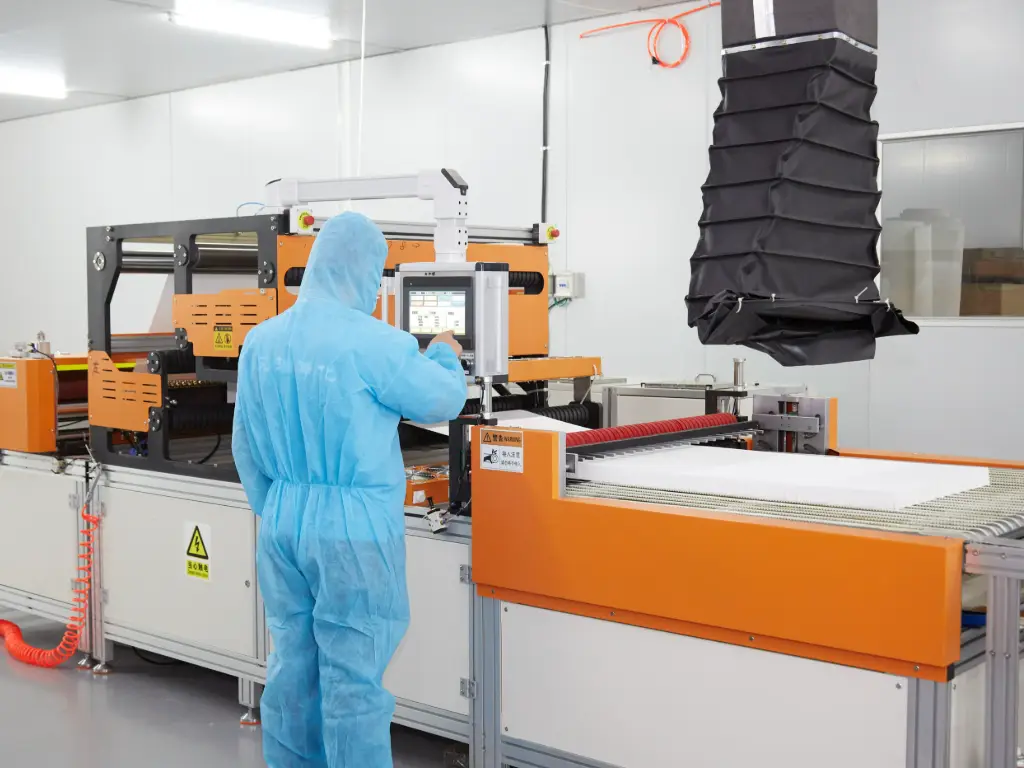
Como fabricante profesional de filtros de aire con más de 17 Años de experiencia, Filtro de aire se especializa en producir filtros HEPA verdaderos certificados que cumplen o superan EN1822 H13/H14 e ISO 29463 estándares. Ofrecemos soluciones de fabricación de filtración de aire de precisión confiables en todo HVAC, cuarto limpio, e industrias de entornos críticos.
Lo que nos diferencia:
✅ Filtros probados individualmente con trazabilidad completa y documentación de inspección
✅ Uso de medios de microfibra de vidrio retardantes de llama con eficiencia de filtración estable
✅ Sellado sin fugas mediante tecnologías de sellado de gel o encapsulado de uretano
✅ Marcos robustos de aluminio o acero galvanizado para integridad estructural
✅ Soporte completo OEM/ODM con plazos de entrega cortos y estricta garantía de calidad
Ya sea que necesite filtros H14 de alto rendimiento para entornos médicos o filtros HEPA H13 personalizados para sistemas industriales, Nuestros equipos de ingeniería y control de calidad garantizan que cada unidad entregue productos certificados., rendimiento confiable.
Preguntas frecuentes
Q1: ¿Existe una gran diferencia entre el filtro HEPA verdadero y el filtro HEPA??
Sí. Los filtros True HEPA están probados y certificados para eliminar ≥99,97 % de partículas de 0,3 μm., mientras que los filtros tipo HEPA pueden estar muy por debajo de ese estándar.
Q2: ¿Qué es un filtro HEPA??
Un filtro HEPA es un filtro de alta eficiencia diseñado para capturar partículas muy pequeñas en el aire.. Sin embargo, Sólo los filtros "verdaderos HEPA" cumplen con los estándares de rendimiento más estrictos..
Q3: ¿El filtro H13 es lo mismo que el verdadero HEPA??
No exactamente. Los filtros H13 cumplen con las normas europeas EN1822. (≥99,95%), que es cercano, pero no idéntico, a EE. UU.. verdaderos estándares HEPA (≥99.97%).
Q4: ¿Cómo sé si necesito un filtro HEPA verdadero??
Si estás lidiando con alérgenos, virus, polvo, o entornos sensibles como el cuidado de la salud, Se recomienda encarecidamente un verdadero filtro HEPA..

